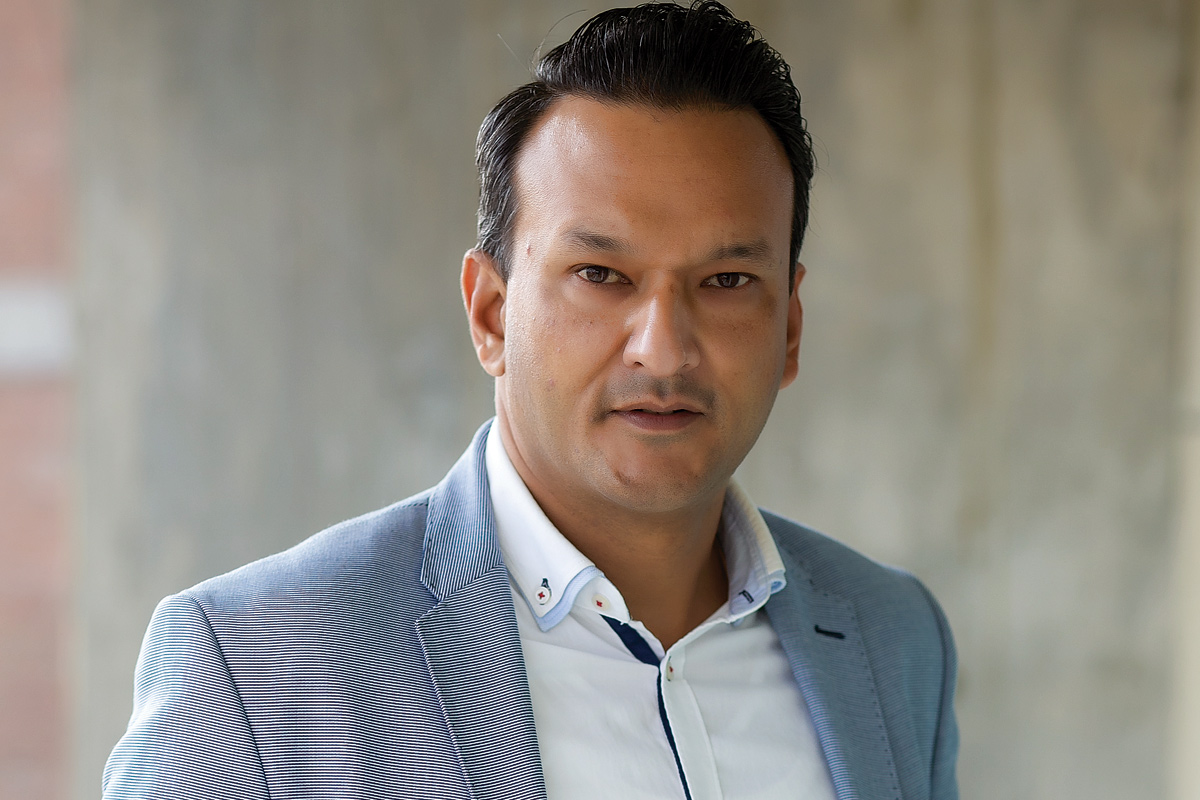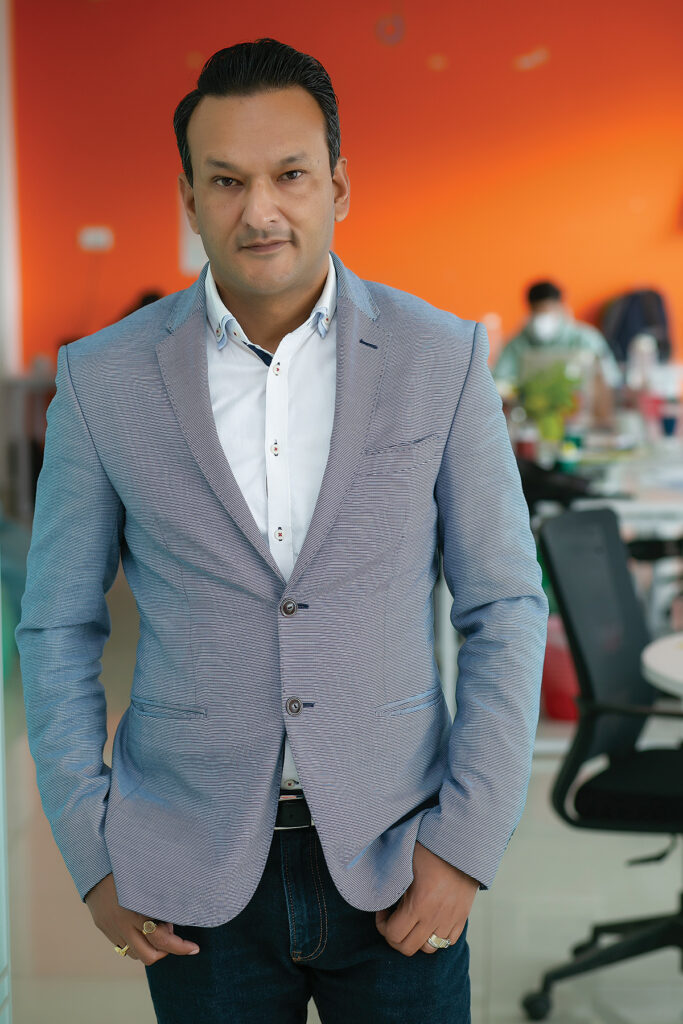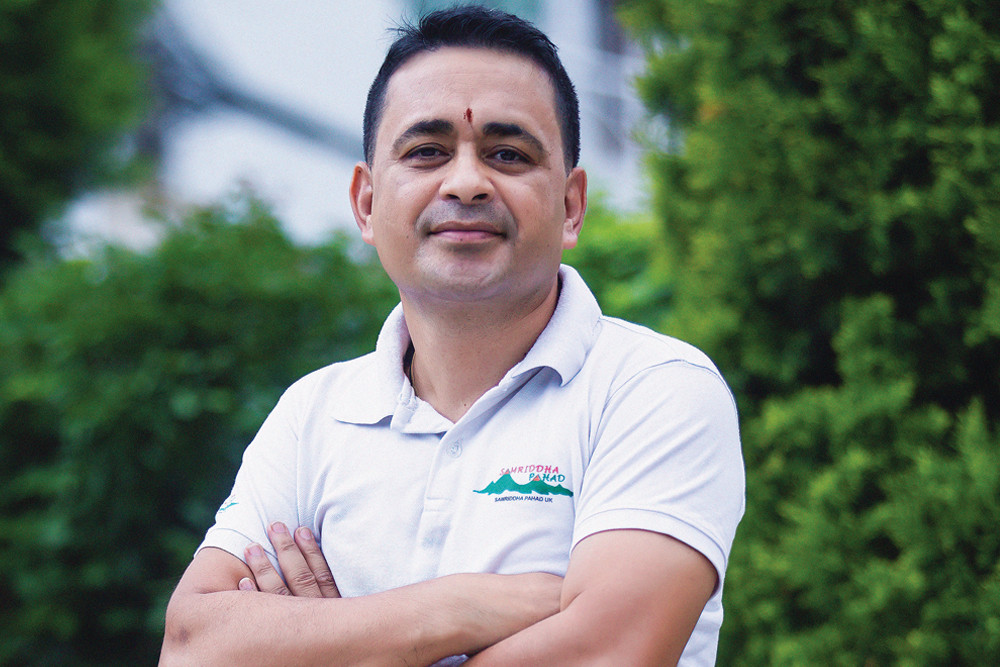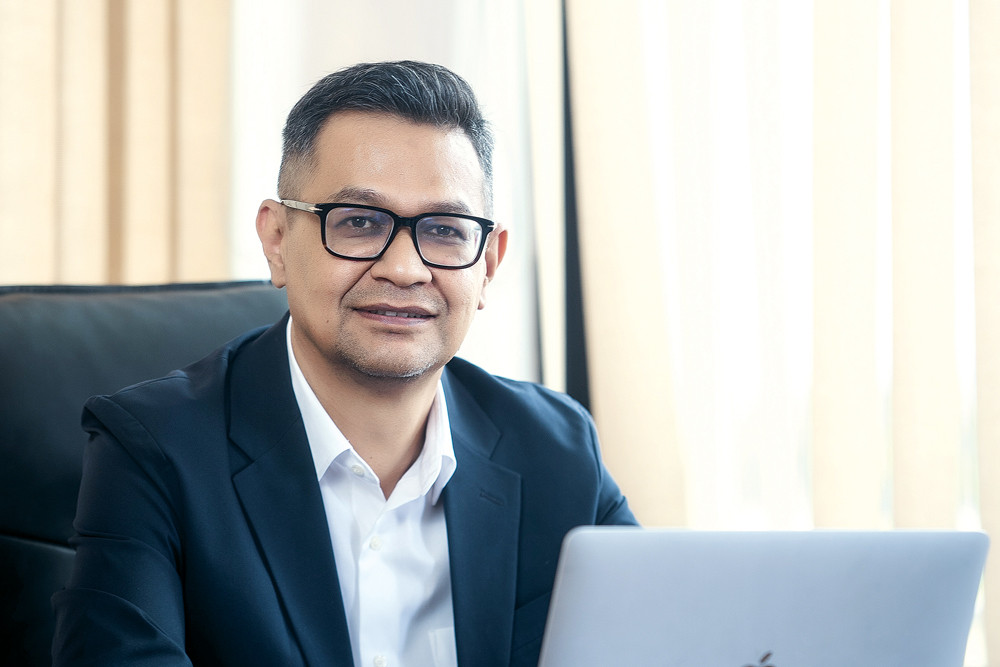
Suman Rayamajhi is a promoter of Upaya and the Chief Financial Officer of Smart Telecom. He holds 20 years plus of work experience in the corporate, telecom, equity and financial sectors in Nepal. He is also founder of Eos Advisors, a boutique investment advisory company, where his expertise lies in setting up and operationalising PE/ Venture Funds, transactions advisory and deal structuring, enterprise valuation and has a vast experience providing business and financial advisory to small medium enterprises, corporate business houses and development organisations. He was previously held the positions of CEO of Business Oxygen (BO2), International Finance Corporation (IFC) SME Venture Fund, Corporate Finance Manager at Tara Management, and Regional Manager of Rastriya Banijya Bank, the Financial Sector Reform Project of World Bank.
Suman entered into the space of tech start-up with the vision to solve problems related to public offices and to enhance transparency of government procedures. He, along with a group of friends, has rolled out the concept of “Upaya” which is working in the space of company related documentation and land related matters. Simultaneously, as part of the digital disruption is evident in Nepal, he is also building the backbone for e-commerce business in logistics, the last mile delivery category. Upaya: City Cargo is a tech enabled platform that aggregates intra-city logistic market in Nepal.
Suman has a Chartered Accountancy degree along with Bachelors in Commerce and was trained from Price Waterhouse Coopers, India. He has attended negotiation courses in Deal Making at the Harvard Negotiation Institute.
A versatile thinker and hands-on doer, in this edition of B360 Suman Rayamajhi talks about leadership. Excerpts:

Is leadership acquired or innate, and why?
It’s both. I believe leadership is innate and also can be acquired. There are born leaders who are charismatic, bold and people’s person. Likewise, there are leaders who create ideas and vision based on their experiences and circumstances. These leaders have acquired their leadership based on the demand of the situation who by characteristics may not be equally bold and extrovert but have acquired the ability to lead by their wisdom, experiences and vision. During this 21st century, we will see more acquired leadership especially in the business world than born leaders.It is said a good leader takes a little more than his share of the blame, and a little less than his share of the credit, would you agree?
Yes, I agree completely. When you are a leader you should have the courage to take all the responsibility of the acts of the people below you especially when things are in crisis and mistakes were made. This will command you respect from your subordinates and strengthen their faith in your leadership. Likewise, achievements or success has to be shared more with your subordinates by you as it will create participation, motivation and empowerment.What are the qualities of a good leader?
Among many, I think good leader should have at least three qualities: integrity, empathy and the ability to influence.Do you think there are fundamental differences between male and female leadership?
I don’t think there is any difference between female or male leaders. Anybody who has the quality to understand their people, lead them to the vision, and support or influence through the path is a good leader, irrespective of the gender.What are some of your strengths as a leader?
My key strengths as a leader, among other skills, are: Empathy: I try to understand people and their needs. This skill helps my team build trust at personal level and help me relate to their issues and problems, allowing me to motivate them. Empowerment: I empower my subordinates as per their ability and allow them to grow within. This builds confidence and participation among team members. This quality helps you build your “circle of trust” among your subordinates and colleagues. Influence: I influence my subordinates to impact their attitudes and opinions and create trust among each other. It means a continuous communication. This is the strength that I have to convince my team and create good team coordination aligned with our vision.
What is your definition of success?
Success for me is any state or situation that meets your expectation and you can afford to celebrate it. Success cannot be an end and it has to be a continuous milestone in one’s life journey. Itwill vary from achievement of your goal, signing of a contract or the moment where one of your subordinates who you have groomed has exceeded your expectations over a period of time. Likewise, on the personal front success would mean happy and healthy family, capacity to lead a decent lifestyle, etc. This is a very subjective, thus success has to be measured personally rather than relatively, so that if you can afford to celebrate with a happy heart every time you meet your expectations, you are successful at that time.Could you tell us about a time you failed and what was your greatest learning from it?
There are many times I have failed despite the fact that I have worked hard, influenced people and planned properly and it has been continuous learning. One of the incidents that I can relate is when I was appointed as Biratnagar Regional Manager of Rastriya Banijya Bank (World Bank Project) for restructuring the whole region and I was barely 27 years old. I had 28 branches to oversee with 700 staff who all were very senior and elder to me. For the first two months, I thought I would instruct and assumed that my Branch Manager would follow my instructions as per my planning. Since I was the boss in that region with full authority, I thought they would obey and work as instructed, but unfortunately it didn’t happen and I failed. The performance was the same without any improvement. From the third months onwards, I changed my leadership style, I visited every branch office, showed empathy and understood each branch managers problem, held participatory branch manager meets for planning to find solutions on quarterly basis, empowered them to take decisions that was supposed to be done at the ground level, motivated key performers in the region; basically I lead by example. I used to work 14 to 16 hours a day to show every employee (govt. official mentality) who had never worked that way that it was possible. From then onwards, the performance was amazing and the eastern region showed profit for the first time ever in the history of RBB. That was a big learning for me at that age that sitting only in that chair with authority and commanding will get you nowhere but you have to lead by example to motivate the entire team to deliver your expectations.The pandemic has challenged leadership at every level, what did it teach you?
The biggest challenge of this pandemic was uncertainty and coping with the continuous changing environment, apart from the health risk. Since everything was so unprecedent and uncontrollable, it was very difficult to plan properly and take decisions. Though it was tough there was an opportunity in Upaya City Cargo business and we focused our delivery services to essential goods. This opportunity forced us to re-vamp our previous application platform and we came up to version 3.0 which was a fully automation system with standardisation of the services.We had two options at that point of time, either to stay where we were and let the crisis decide our fate or we innovate and evolve to find that opportunity. We decided to take the latter option and during the lockdown, we did our mission/vision exercise and aligned the whole team to our goals and innovated a next level application platform. Our learning in this whole crisis was that if we look within and keep exploring there is always an opportunity in any crisis and one should be able to grab the opportunity by staying positive and trying relentlessly. Focus on things that you have control of and try to hold on to your team, they need you and your assurance the most at that point of time.What according to your is the greatest principle of leadership?
The greatest principle of leadership for me is to ‘lead by example’.What are some of the things that you would never settle for or tolerate in your work?
I would not tolerate: harassment/ bullying, disrespecting one another and fraud.Three leadership lessons you think are absolutely essential for companies to succeed…
The followings are the three essential leadership lessons for success: Planning with clear vision and mission Proper delegation of work with responsibility and authority Support and monitoringof the staff and enhancing their skills sets though continuous learning processA leader you are inspired by....
Mahatma Gandhi: Apart from the peace movement that he brought through unity, non-violence, honesty etc., his leadership principle was “lead by example” and “empowering his followers”.A book you would recommend on leadership
The 7 habits of highly effective people. Honestly, I am not much of a reader but I have my own means to gather my knowledge, information and update myself through various means like news, web research, movies, documentary, self-analysis of key subject matters, etc.What do you do to continually grow as a person, and as a leader?
I keep pushing myself to do new things or take up new challenges. I fear moving out of my comfort zone but I always push myself to face that fear deliberately so that I am forced to learn more, work harder, and keep myself appraised about what’s happening. Since I have my team looking up to me every time with endless queries, as a leader I force myself to come out of my comfort zone for learning, making mistakes, learning from it again and evolving continuously.
Published Date: December 16, 2020, 12:00 am
Post Comment
E-Magazine
RELATED Leadership


.jpg)


.jpg)